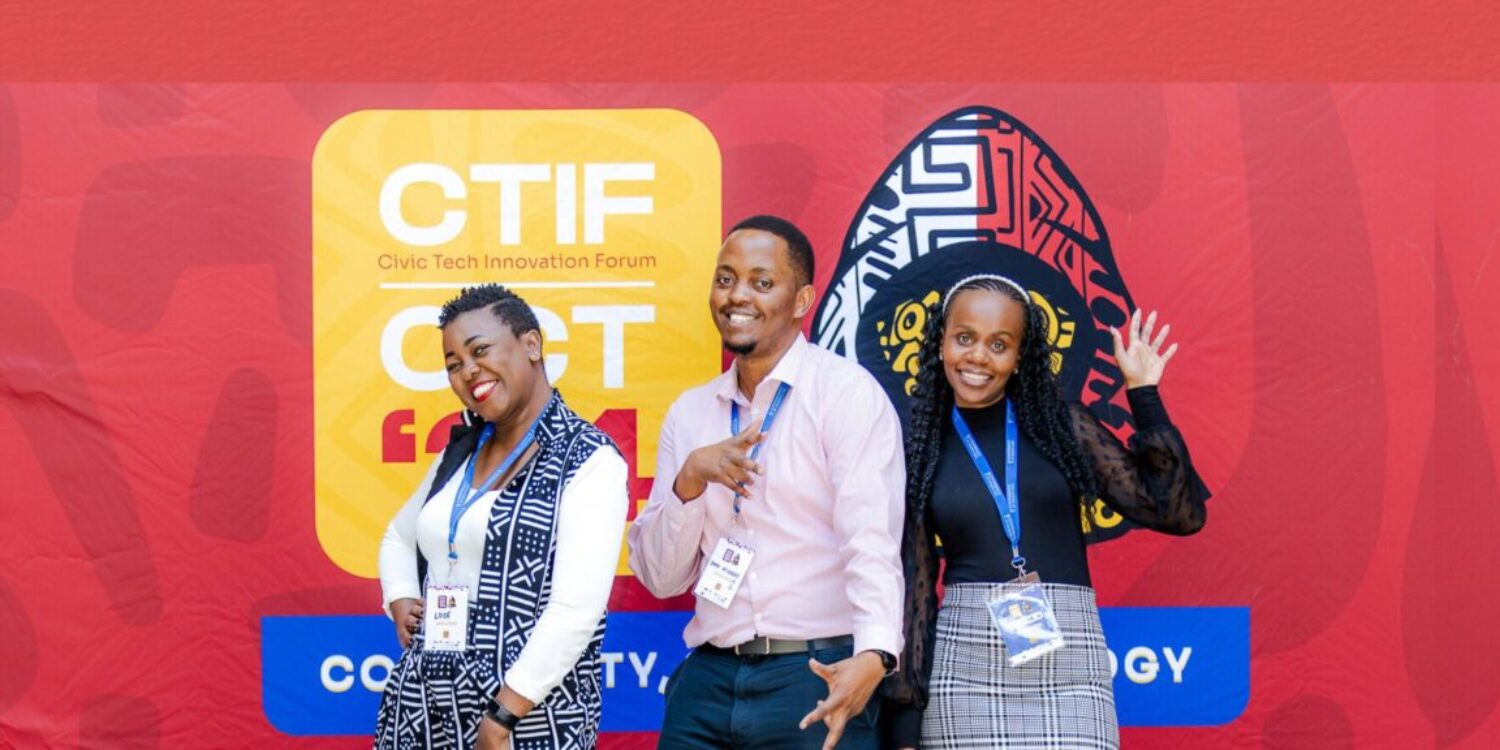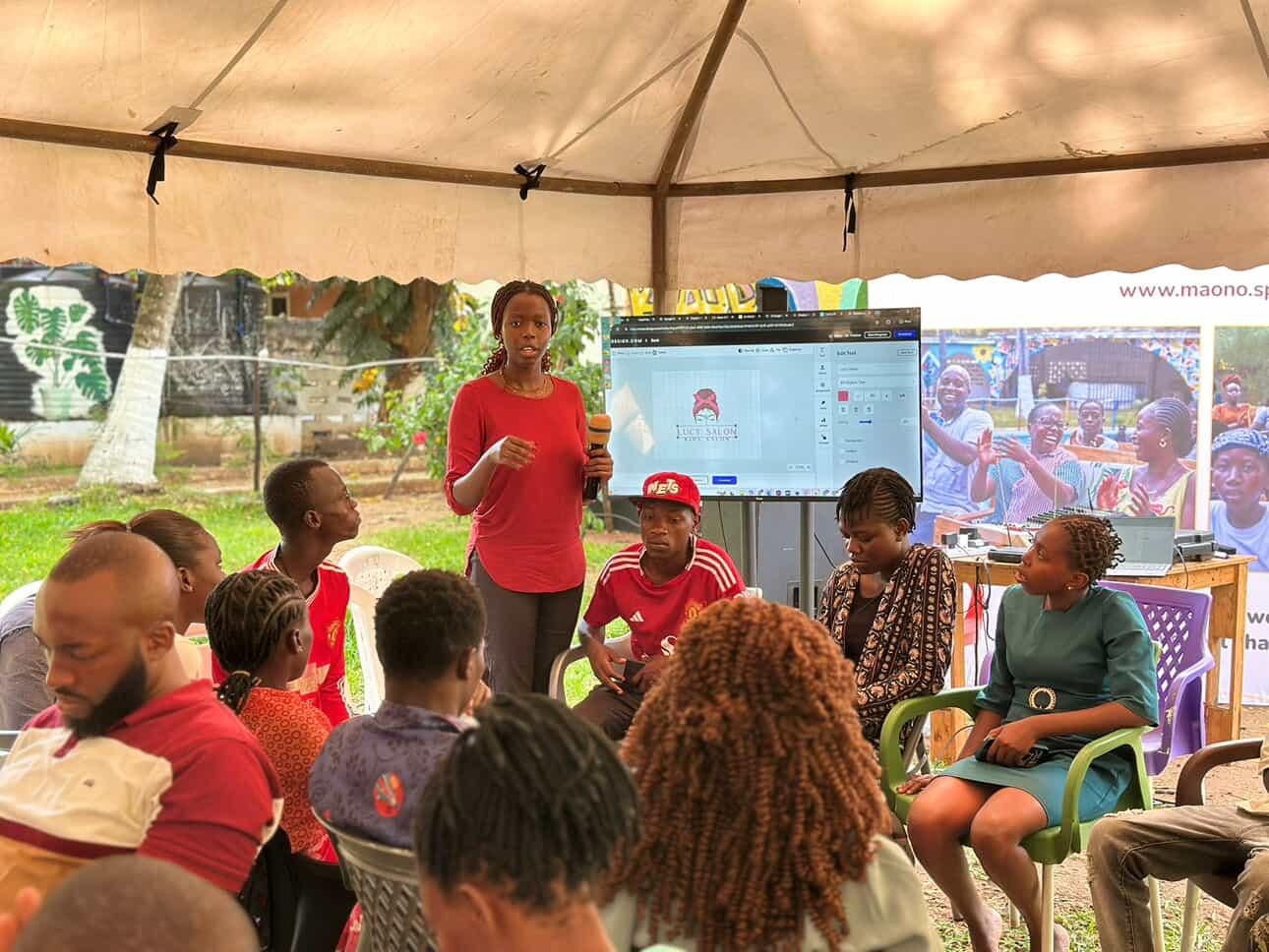The Civic Tech Innovation Forum 2024 opened up fresh perspectives on the interplay between technology, data, and governance across Africa. Themed “Under The Hood”, it caused civil society players to reflect on the relationship between self, community and tech while looking under the hood, underneath the surface of our work, our communities and the technology that powers it all. While each session explored a different facet of civic tech, the key themes pointed to an urgent need for deeper alignment between technology-driven solutions and the fundamental needs of African communities. Through masterclasses, panels, and roundtable discussions, participants grappled with critical questions: How do we ensure that tech solutions in governance resonate with local needs? Are we civic-tech-driven, or simply tech-driven?
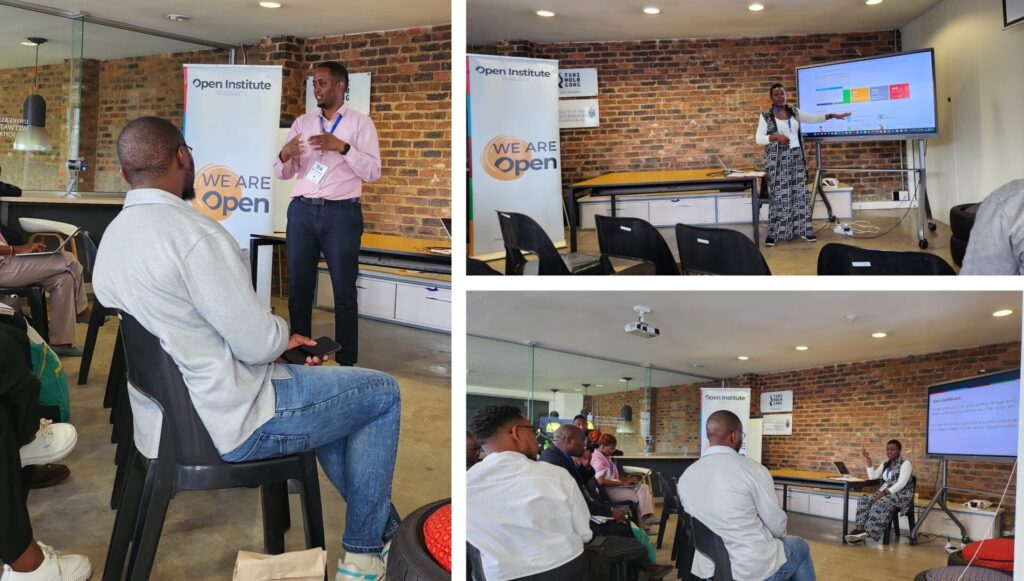
Decision-Making in Governance: Bridging Data and Strategy
In reality, many governments lack the right tools and the data maturity necessary to make informed decisions, often struggling with limited capacity and knowledge gaps. However, the challenge remains: are civil society organisations inadvertently skewing their reporting by focusing on successes over failures? This was a focal point of our Masterclass, where Loise Mboo led a discussion on the “decision-making quagmire” that arises when integrating data into national and regional strategies. She underscored how data, when used thoughtfully, can drive governance that is both responsive and inclusive. However, civil society must first understand the decision-making frameworks that guide each country’s goals, often anchored in national visions like Kenya’s Vision 2030. To support this approach, our enhanced Sabasi Suite offers a practical solution for addressing these data challenges. Designed to be both user-friendly and offline-capable, Sabasi Suite simplifies data collection and visualisation, helping bridge gaps in data accessibility and quality.
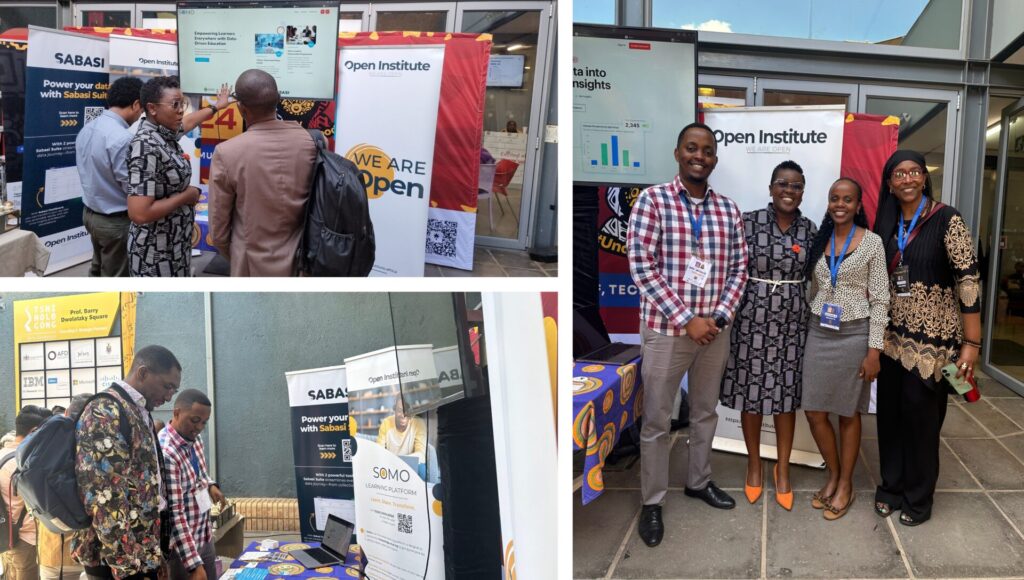
One key takeaway was the importance of sharing both achievements and setbacks, as lessons learned from what hasn’t worked are crucial for refining future strategies.
Digital Access and Participation: The Power of Youth-Led Movements
The second day’s panel on digital access and participation highlighted the power of youth-driven civic tech, especially as witnessed in the Gen Z-led protests in Kenya against the Finance Bill 2024. This movement showcased how digital tools can amplify voices and facilitate large-scale mobilisation, with youth activists and influencers using AI tools like the Finance Bill GPT and social media platforms to inform, organise, and unite citizens. These young advocates cleverly bypassed traditional channels, using anonymity, catchy visual symbols, and digital engagement to challenge the government’s agenda.

The Kenyan example is a compelling reminder that youth are reshaping civic engagement in Africa. However, this movement raises questions about the sustainability of digital activism: How can we ensure these efforts translate into long-term policy impact? And what role should civil society play in providing ongoing support and infrastructure for such grassroots activism?
The Open Institute’s Maono Space in Malindi illustrates the power of inclusive, community-centric civic tech spaces. By establishing a physical hub for changemakers, journalists, and creatives, Maono is fostering grassroots collaboration and supporting digital literacy, especially around issues like data protection. The space’s partnership with the Media Council of Kenya and its capacity-building grants have strengthened local initiatives, demonstrating the impact of providing resources where they’re most needed.
In areas like Malindi, where internet access and digital literacy can be limited, Maono’s localised approach is critical. Open Institute’s data protection awareness campaign, which has been active for three years, found that many rural communities lacked basic knowledge about their data rights. Using offline tactics, the campaign tailored its outreach to the unique needs of the region, showing that effective civic tech solutions often require local adaptation rather than a one-size-fits-all model.
Reflecting on Civic Tech: Are we civic-tech-driven or simply tech-driven?
As the exciting discussions drew to an end, the forum’s closing plenary provided an opportunity for reflection. Loise brought forward a compelling question: “Are we civic-tech-driven or simply tech-driven?” For too long, technology has often been treated as an end in itself rather than a means to address core issues affecting African communities. She emphasised that civic tech must first identify and respond to people’s fundamental needs — from governance to economic challenges — before focusing on digital solutions. Civic tech should be a response to genuine community concerns, not merely a pursuit of innovation for innovation’s sake.
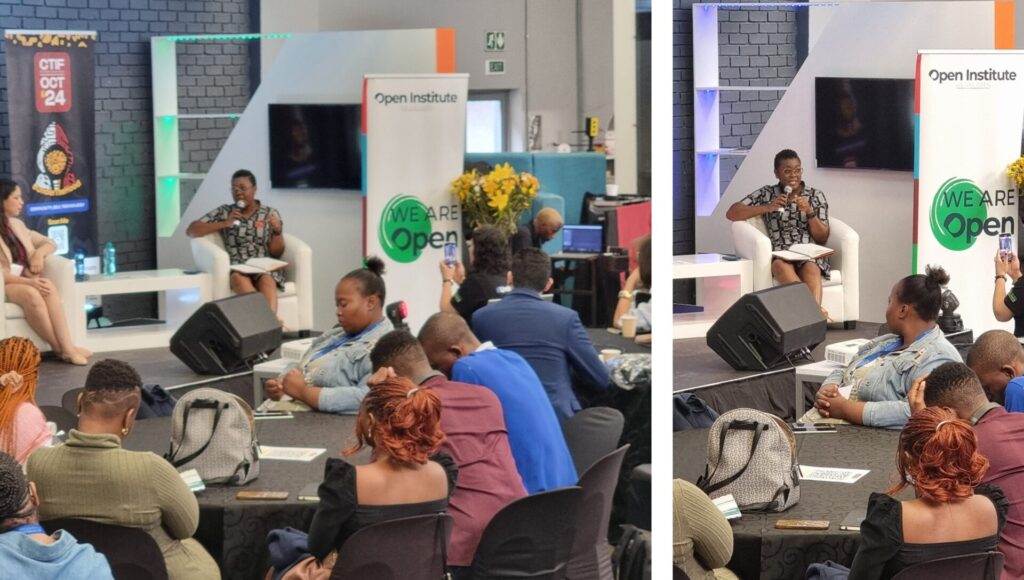
This theme ties back to the Gen Z protests: while social media was the primary platform, the movement was fueled by real grievances, such as economic instability and political dissatisfaction. Civic tech initiatives need to dig deeper, continually asking questions like: “What are our communities’ pressing needs? Are our solutions must-haves that actually address these needs?” By putting people before technology, civic tech initiatives can stay relevant, impactful, and community-centred.
The Path Forward for Civic Tech in Africa
The Civic Tech Innovation Forum emphasised that the future of civic tech in Africa must be rooted in local context, accessible to all, and genuinely responsive to citizens’ needs. The theme, “Under The Hood,” encouraged civil society leaders to reflect deeply on how technology, community, and individual purpose intersect, challenging them to look beyond the surface of their work and the tech that powers it. Initiatives like Sabasi Suite and Maono Space exemplify the impact that tech innovation can have when driven by empathy, inclusivity, and a genuine commitment to community. Civic tech’s true potential lies not only in its tools but in its ability to bridge citizens, government, and community—connecting people with purpose and fostering data-driven governance. To stay effective, the sector must continue asking critical questions to ensure that every innovation aligns with the unique needs of Africa’s diverse communities.
Civic tech’s greatest power lies not just in its tools but in its ability to connect citizens, government, and community, ensuring that every innovation responds to the heartbeat of Africa’s diverse societies.

